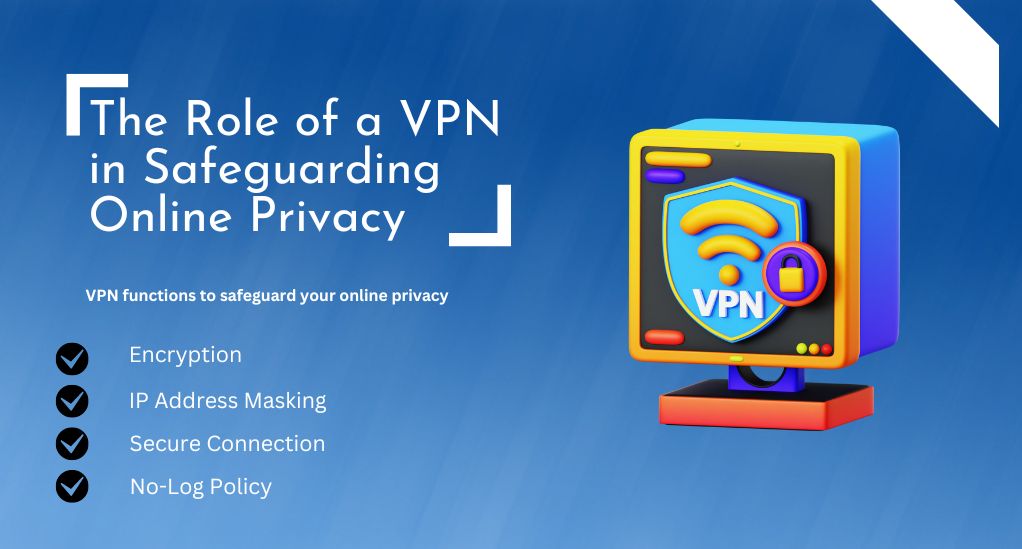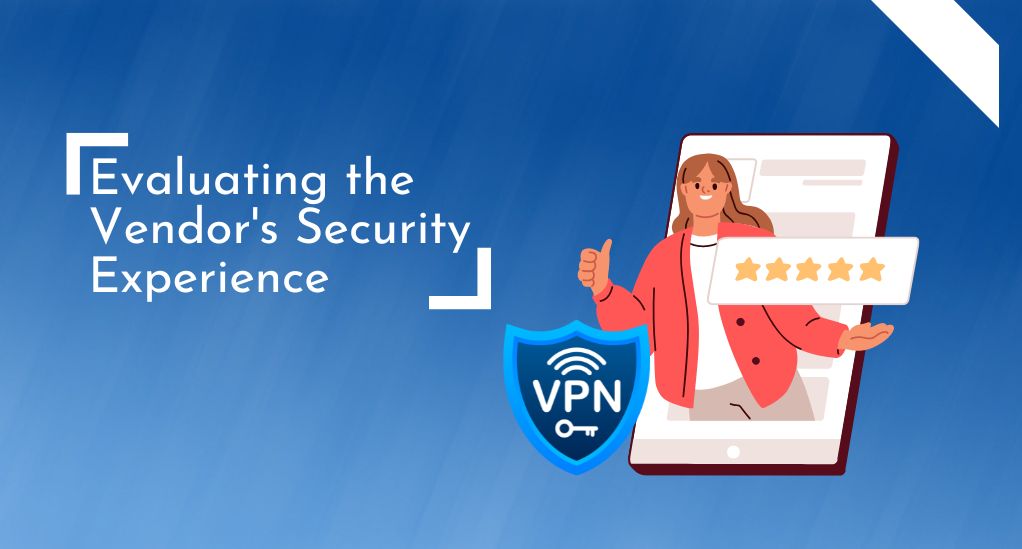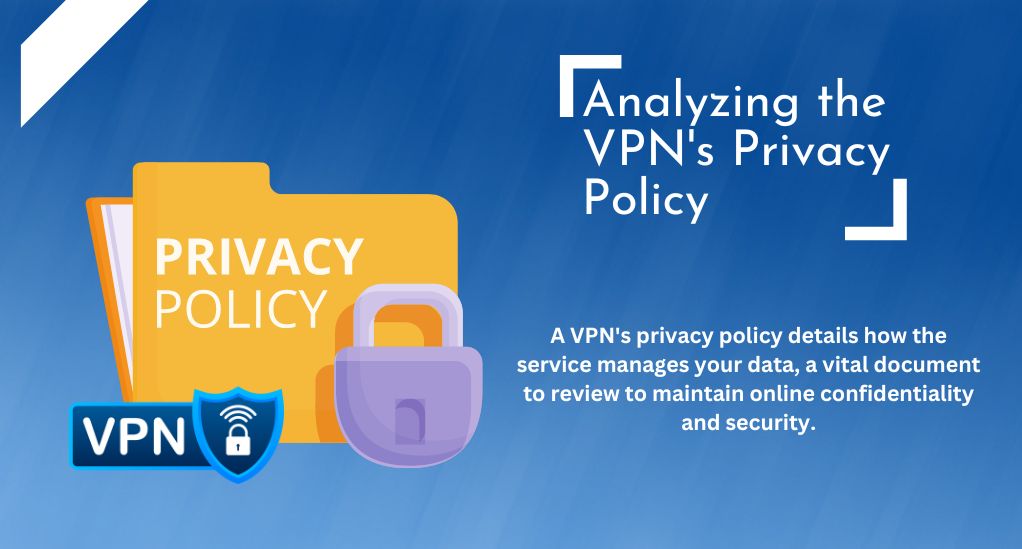How to Choose the Right VPN for Your Needs: A Comprehensive Guide
In the digital age, safeguarding your online privacy is more critical than ever. With cyber threats lurking at every corner, a Virtual Private Network (VPN) serves as your first line of defense. Choosing the right VPN, therefore, is not just a matter of convenience but a necessity. In this guide, we delve deep into the intricacies of selecting a VPN that aligns with your needs and ensures a secure online experience. Let’s embark on this journey step by step.
Importance of Choosing the Right VPN
A VPN is more than just a tool; it’s your virtual safeguard in the online world. The right VPN can:
- Protect Your Personal Information: Shield your sensitive data from prying eyes, ensuring that your personal information remains confidential.
- Secure Online Transactions: Create a secure tunnel for your online transactions, making online shopping and banking safer.
- Bypass Geo-Restrictions: Allow you to access content available in different geographical locations, bypassing any regional restrictions.
- Maintain Online Anonymity: Help you maintain anonymity online, shielding your activities from ISPs and potential eavesdroppers.
To choose a VPN that caters to all these needs, one must consider various factors, including the VPN’s features, privacy policies, and the credibility of the provider.
The Role of a VPN in Safeguarding Online Privacy
A VPN acts as a secure tunnel for your internet connection, encrypting the data that travels between your device and the server. This encryption makes it nearly impossible for hackers to intercept and decipher your data. Here’s how a VPN functions to safeguard your online privacy:

- Encryption: A VPN uses robust encryption algorithms to secure data transmission, making it unreadable to unauthorized users.
- IP Address Masking: It masks your IP address, making your online actions virtually untraceable.
- Secure Connection: Establishes a secure connection to various networks, even in public Wi-Fi spaces, reducing the risk of data theft.
- No-Log Policy: A reliable VPN provider adheres to a strict no-log policy, ensuring that your online activities are not recorded or stored.
To further elucidate the role of a VPN, let’s consider a comparison table that contrasts a secure online environment with a VPN and the potential risks without one:
| Aspect | With VPN | Without VPN |
|---|---|---|
| Online Privacy | Enhanced with encryption | Vulnerable to data breaches |
| Online Transactions | Secure and encrypted | Prone to hacking and fraud |
| Geo-Restrictions | Easily bypassed | Restricted access to global content |
| Online Anonymity | Maintained through IP masking | Exposed to ISPs and third parties |
Understanding the True Cost of a Free VPN
In the vast market of VPN services, you’ll find a plethora of free options that might seem tempting at first glance. However, it’s crucial to understand that these free services often come with hidden costs that could potentially compromise your online safety and privacy. Let’s dissect the true nature of free VPNs and why opting for a paid service might be a wiser choice.
Hidden Costs of Free VPNs
Free VPNs need to generate revenue to maintain their services, and this is often done through means that might not be in the best interest of the users. Here are some hidden costs associated with free VPNs:
- Advertisements: Free VPNs often bombard users with advertisements, which can be both annoying and invasive.
- Selling User Data: Some free VPNs resort to selling user data to third parties, which is a blatant violation of your privacy.
- Limited Features: Free VPNs usually offer limited features, including bandwidth restrictions, fewer server options, and basic encryption protocols.
To give you a clearer picture, let’s compare free and paid VPNs in a comparison table:
| Features | Free VPN | Paid VPN |
|---|---|---|
| Advertisements | Frequent | Ad-free experience |
| User Data Privacy | Potentially compromised | Strict no-log policy |
| Features & Security | Limited and basic | Advanced and customizable |
| Customer Support | Limited assistance | 24/7 customer support |
The Trade-off Between Features and Privacy
When opting for a free VPN, users often compromise on features and privacy. Here’s a deeper look into the trade-offs:
- Security Protocols: Free VPNs might not offer the latest security protocols, leaving users vulnerable to cyber threats.
- Server Locations: Limited server locations mean that users might not be able to bypass geo-restrictions effectively.
- Connection Speed: Free VPNs often have crowded servers, resulting in slower connection speeds and frequent disconnections.
- Data Caps: Many free VPNs impose data caps, restricting the amount of data you can use, which can hinder activities like streaming and gaming.
Evaluating the Vendor’s Security Experience
Choosing a VPN is akin to entrusting someone with the keys to your online home. Hence, it becomes imperative to select a vendor with a proven track record in cybersecurity. In this section, we will guide you through the steps to evaluate a vendor’s security experience, helping you make an informed choice.

Importance of Vendor’s Background in Cybersecurity
A vendor’s background in cybersecurity can be a testament to their capability to protect your online privacy. Here are some factors to consider:
- Years of Experience: A vendor with many years of experience is likely to have a more robust and secure infrastructure.
- Reputation: Consider the reputation of the vendor in the industry. Look for reviews and testimonials from credible sources.
- Certifications and Awards: Check if the vendor has received any certifications or awards that vouch for their expertise in cybersecurity.
- Transparency Reports: Reputable vendors often publish transparency reports that detail their data handling practices, showcasing their commitment to user privacy.
Transparency and Trustworthiness of VPN Providers
Transparency is a cornerstone of trustworthiness in the VPN industry. Here’s how you can gauge the transparency of a VPN provider:
- Privacy Policy: Analyze the privacy policy of the vendor to understand their data logging practices. A trustworthy vendor will have a clear and concise privacy policy that respects user privacy.
- Open Source Software: Some vendors use open-source software, which allows for community auditing, ensuring transparency in their operations.
- Third-Party Audits: Look for vendors who have undergone third-party audits to verify their security and privacy claims.
- Customer Support: A reliable vendor will offer responsive customer support, ready to address your concerns and queries.
Navigating Through VPN Reviews
In the quest to find the perfect VPN, reviews can be a valuable resource. However, the internet is flooded with both independent and paid reviews, making it somewhat challenging to discern which ones to trust. In this section, we will equip you with the skills to navigate through VPN reviews critically and make an informed decision.
Identifying Independent Reviews
Not all reviews are created equal. While some offer unbiased insights, others might be influenced by the VPN providers themselves. Here’s how you can identify independent reviews:
- Source Credibility: Check the credibility of the source. Reputable tech websites and forums often provide unbiased reviews.
- Detailed Analysis: Independent reviews usually offer a detailed analysis, covering both the pros and cons of the service.
- User Testimonials: Look for user testimonials on platforms where users share their genuine experiences, such as Reddit or community forums.
- Expert Opinions: Seek out opinions from industry experts who have a deep understanding of cybersecurity and VPN services.
Being Critical of Biased Comparisons and Reviews
Unfortunately, the internet is also home to biased reviews that might mislead potential users. Here’s how to be critical of such reviews:
- Overly Positive Reviews: Be wary of reviews that only highlight the positive aspects without mentioning any downsides.
- Affiliate Links: Some reviews might contain affiliate links, where the reviewer gets a commission for every sale. While not all of these reviews are biased, it’s essential to approach them with a critical eye.
- Lack of Technical Details: Reviews lacking technical details and only focusing on superficial features might not provide a complete picture.
- Inconsistent User Reviews: If there is a significant discrepancy between user reviews and expert reviews, it might be a red flag.
The Significance of the VPN Provider’s Home Country
When selecting a VPN, the provider’s home country can play a pivotal role in determining the level of privacy you can expect. Different countries have varied regulations concerning data retention and surveillance. In this section, we will guide you on how to consider the legal landscape of a VPN provider’s home country while making your choice.
Laws Governing Data Collection and Handling
Different countries have distinct laws governing the collection, storage, and handling of user data. Here are some factors to consider:
- Data Retention Laws: Some countries have stringent data retention laws that compel VPN providers to store user data for a specific period. Understanding these laws can help you gauge the potential privacy risks.
- Surveillance Programs: Be aware of countries that have active surveillance programs, which might compromise the privacy of VPN users.
- International Agreements: Consider the international agreements a country is part of, as it might influence the data sharing practices with other nations.
- User Rights and Privacy Laws: Evaluate the user rights and privacy laws of the country to understand how they protect individual privacy.
How the Home Country Can Affect Your Privacy
The home country of a VPN provider can significantly influence your online privacy. Here’s how:
- Jurisdiction: The jurisdiction can dictate the legal obligations of the VPN provider concerning data collection and sharing with authorities.
- Data Breach Risks: Depending on the country’s laws, there might be varying levels of protection against data breaches and unauthorized data access.
- Transparency and Accountability: The legal framework in the home country can influence the transparency and accountability of the VPN provider in their operations.
- Response to Legal Requests: VPN providers might be required to respond to legal requests for data access, which can potentially compromise user privacy.
Analyzing the VPN’s Privacy Policy
A VPN’s privacy policy is a critical document that outlines how the provider handles your data. It is essential to scrutinize this policy carefully to ensure that your online activities remain confidential and secure. In this section, we will guide you on how to dissect a VPN’s privacy policy to make an informed choice.

Understanding Log Policies
VPN providers have different approaches to logging user data. Understanding these log policies can help you gauge the level of privacy you can expect. Here are some aspects to consider:
- Connection Logs: These are logs that track general information such as connection times and bandwidth used. While these logs are generally non-intrusive, it’s best to opt for a provider that keeps minimal connection logs.
- Usage Logs: These logs contain detailed information about your online activities. A privacy-centric VPN provider should have a strict no-usage-log policy to ensure your online anonymity.
- Third-Party Sharing: Check if the VPN provider shares data with third parties and under what circumstances. A reliable provider will have clear policies against sharing data with external entities.
- Data Retention Period: Understand the data retention period, which indicates how long the provider stores your data. Opt for providers who retain data for the shortest possible time or not at all.
Verifying Claims of No-Log Policies
While many VPN providers claim to have no-log policies, verifying these claims is crucial. Here’s how you can do it:
- Third-Party Audits: Check if the provider has undergone third-party audits to validate their no-log claims. These audits are a testament to the provider’s commitment to user privacy.
- Transparency Reports: Look for transparency reports that detail the provider’s data handling practices and their response to government data requests.
- User Reviews and Testimonials: User reviews and testimonials can provide insights into the provider’s adherence to their privacy policies.
- Legal Jurisdiction: Consider the legal jurisdiction the provider operates under, as it can influence their data logging practices.
Considering Server Options and Potential Security Risks
When selecting a VPN, the server options provided and the potential security risks associated with them are vital factors to consider. A VPN with a robust server network can enhance your online experience, but it’s essential to be aware of the potential security risks. In this section, we will guide you on how to evaluate server options and mitigate potential security risks.
The Pros and Cons of Having Numerous Server Options
Having a variety of server options can be both a boon and a bane. Let’s explore the pros and cons:
- Pros:
- Global Access: A vast server network allows you to bypass geo-restrictions effectively, granting access to content globally.
- Improved Speeds: With more servers, you can find a server close to your location, potentially improving connection speeds.
- Better Reliability: A large server network often means better reliability, with less downtime and congestion.
- Cons:
- Potential Security Risks: More servers can sometimes mean potential security risks, especially if the servers are not well-maintained.
- Complexity: A vast server network can sometimes be complex to navigate, especially for users who are new to VPNs.
Evaluating the Security of Server Networks
Ensuring the security of the server network is paramount. Here’s how you can evaluate the security of server networks:
- Encryption Standards: Check the encryption standards employed by the VPN provider to secure data transmission across their servers.
- Server Maintenance: Understand how the VPN provider maintains their servers to ensure security and prevent unauthorized access.
- Physical Security: Consider the physical security measures in place to protect the servers from unauthorized access and potential tampering.
- Incident Response: Learn about the provider’s incident response plan in case of a security breach, ensuring timely mitigation of risks.
Conclusion
In conclusion, selecting the right VPN is a pivotal step in securing your online presence in this digital age. This comprehensive guide has aimed to illuminate the multifaceted aspects you need to consider, from scrutinizing the vendor’s security experience to understanding the implications of a VPN provider’s home country on your privacy. As you venture to choose a VPN, remember that it should serve as a steadfast guardian of your digital journey, offering not only security but also the freedom to explore the online world without boundaries. Make an informed choice, prioritize your privacy, and embrace a safer, unrestricted digital experience.


Leave a Reply